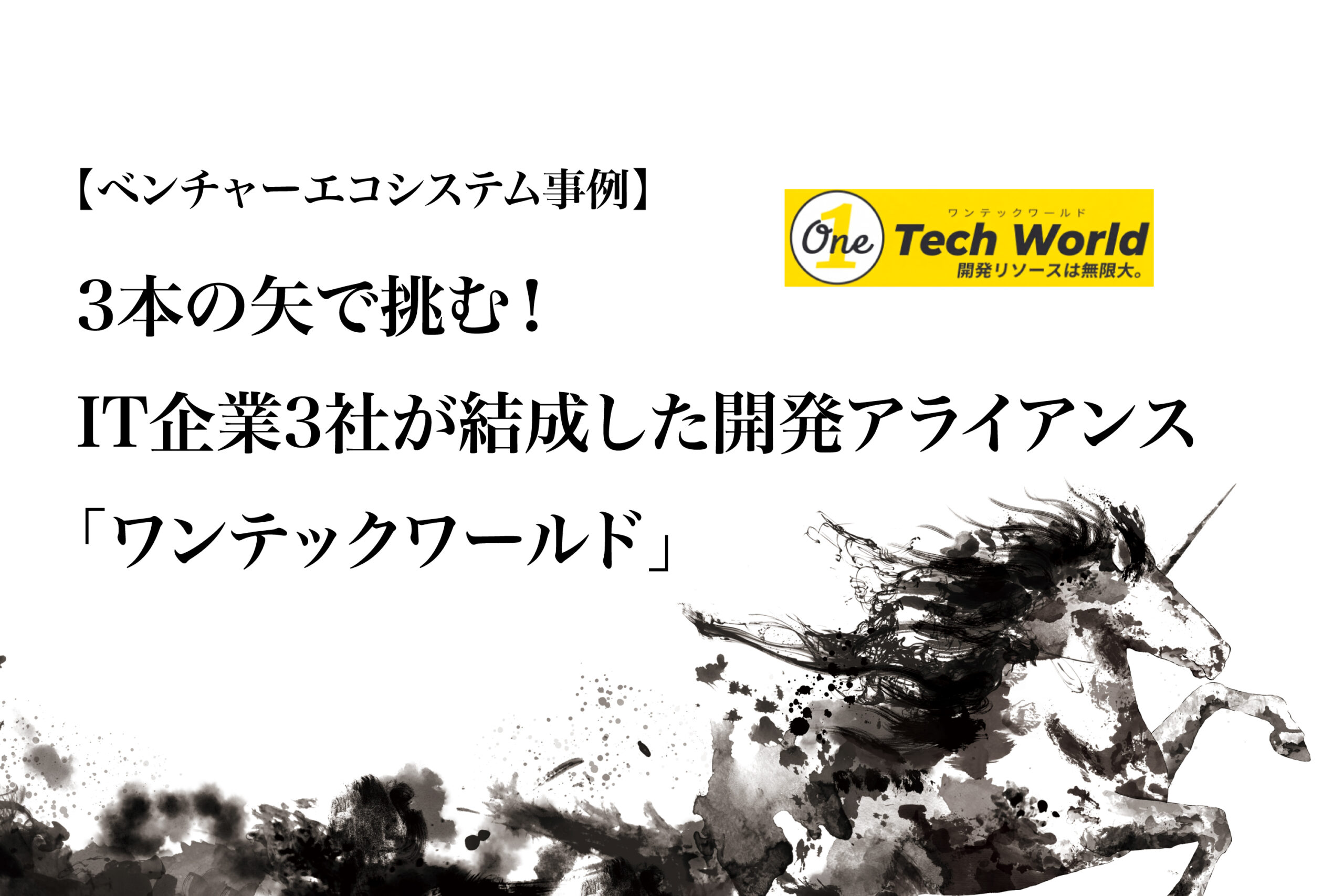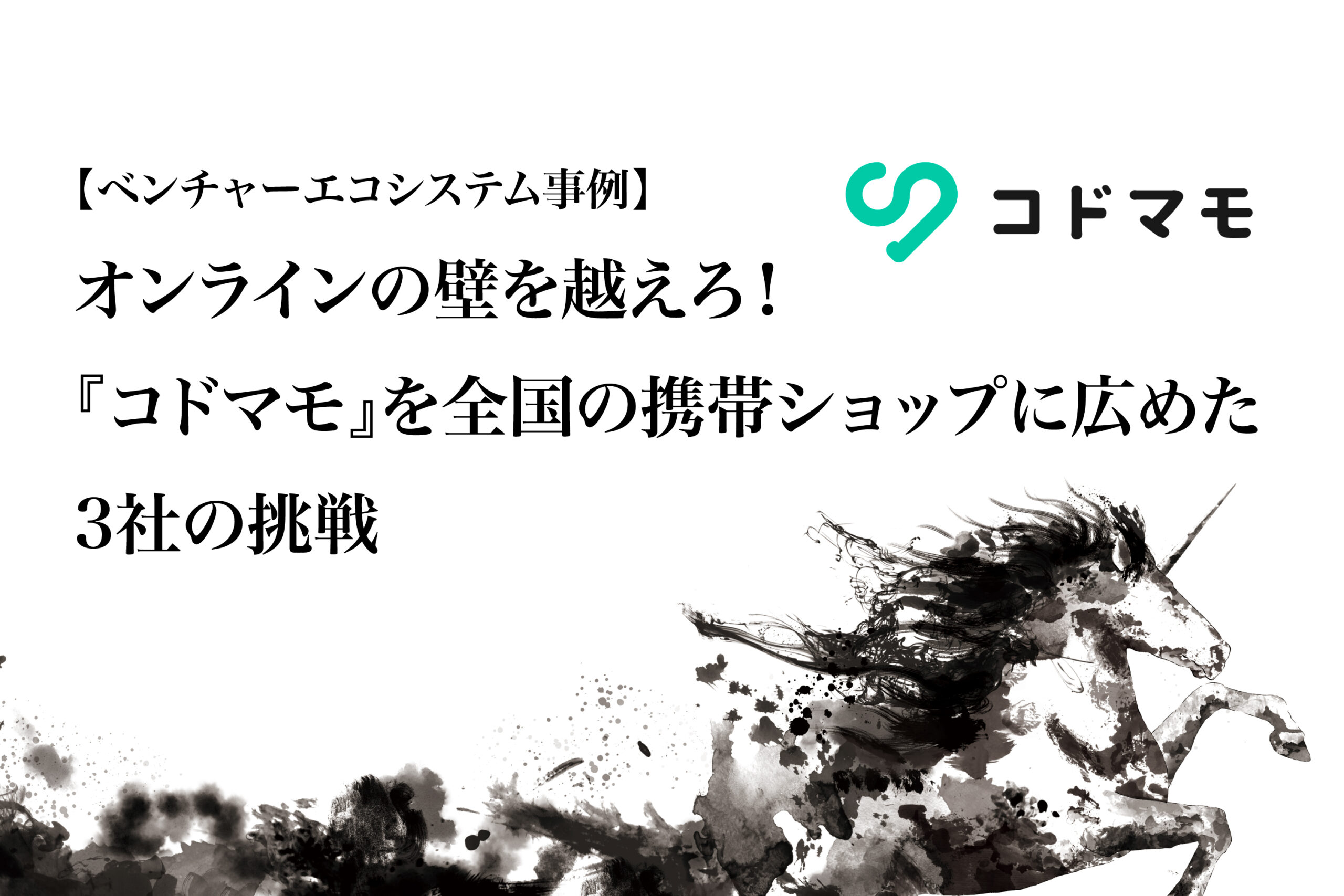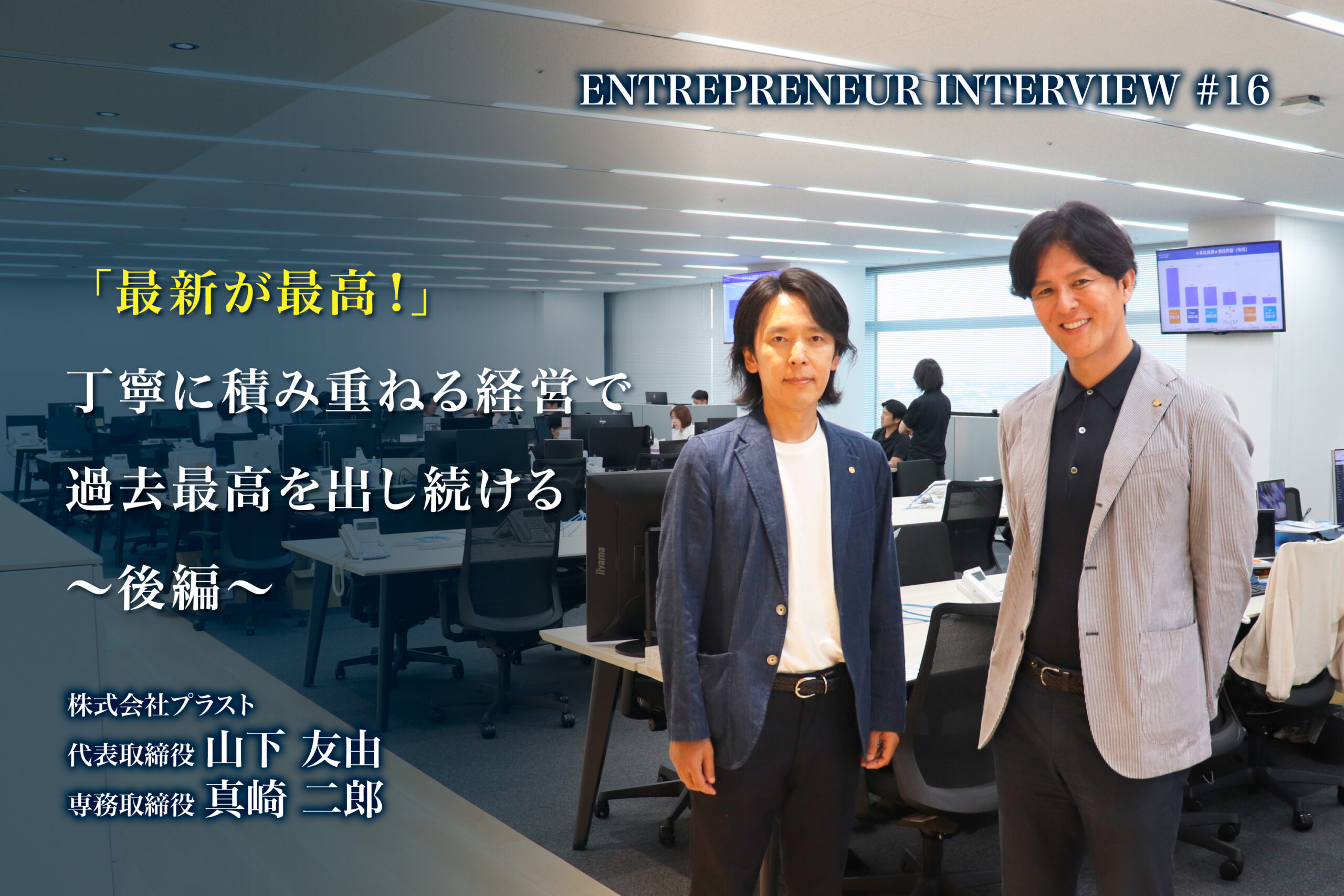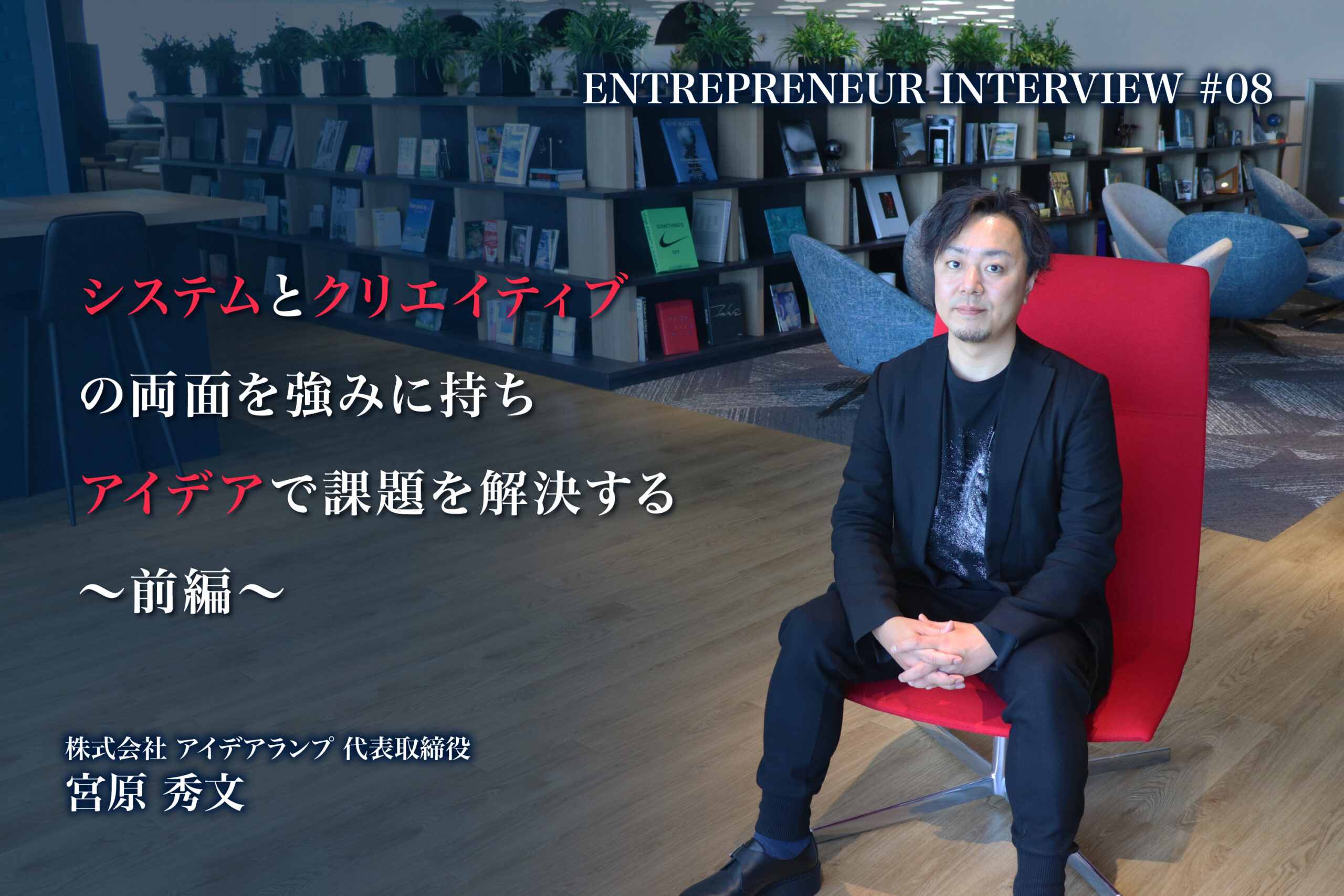
Using Ideas to Solve Challenges with the Strengths of Both Systems and Creativity
D-POPS GROUP has 23 group companies that we call partners (at the time of publication).
For this article, we interviewed Hidefumi Miyahara, the CEO of idealump Co., Ltd, which joined D-POPS GROUP in December 2023. (This interview was conducted in December 2024.)
◆The Founding of Idealump
Sugihara:
Today, we’re interviewing President Miyahara, CEO of Idealump. Thank you for your time. First of all, congratulations on receiving a special award this month at D-POPS GROUP’s annual all-hands event.
Miyahara:
Thank you very much!
Sugihara:
Of course Idealump’s performance was part of it, but I believe it was also an acknowledgement of your activities in the past year since you joined. For example, your company renovated the websites of D-POPS GROUP and other group companies, and you collaborated in various ways as well. Now, let’s get straight to it. Can you tell us about the journey that led you to found Idealump?
Miyahara:
I founded Idealump in 2008. I had been self-employed since around 2006…actually, at first, I was a starving artist. I composed music for idols and jingles for the radio. For about three years, I was living on only three or four hours of sleep a night, and I started to feel a bit depressed.
This is awful, I thought to myself, but let’s keep trying to work in the music business anyway! However, because I didn’t have much life experience, my jobs started to disappear one by one, and before I knew it, I was making only 30,000 yen a month. I knew I couldn’t make a living like that, so I decided to try something else, and that something was being a professional planner.
I knew I had to start by coming up with ideas, proposing them, and winning projects. I was very vague about what sort of planning I did, so I was involved in all sorts of things, like event planning, interior design for stores, and creating signs, pamphlets, flyers, and websites. It was then that I felt the most potential in website creation.
2008 was the year of the Lehman Shock, and while Yahoo was already around, flip phones still reigned supreme here. At that time in Japan, IT startups were barely beginning to emerge, but for some reason, that’s when I decided to start. To get projects, I just read one book on web direction and then relentlessly knocked on doors, ha ha. I read that book from cover to cover until it was practically falling apart, and drilled its contents into my head.
It’s a bit embarrassing to admit, but sometimes the clients still knew more than I did. They would ask me things like, “How will you handle SEO?”, and I honestly had no idea. But I would simply say “I’ll do my best!”, and pick it up on the spot.
Sugihara:
That’s totally the venture spirit!
Miyahara:
It’s true, a lot of people who start a company in the IT field these days work at a major IT company first and then go independent. On the other hand, I had absolutely no precedent like that to work from.
So, I had no friends or acquaintances in the IT industry back then; rather, most of my friends worked at construction companies, landscaping companies, and restaurants.
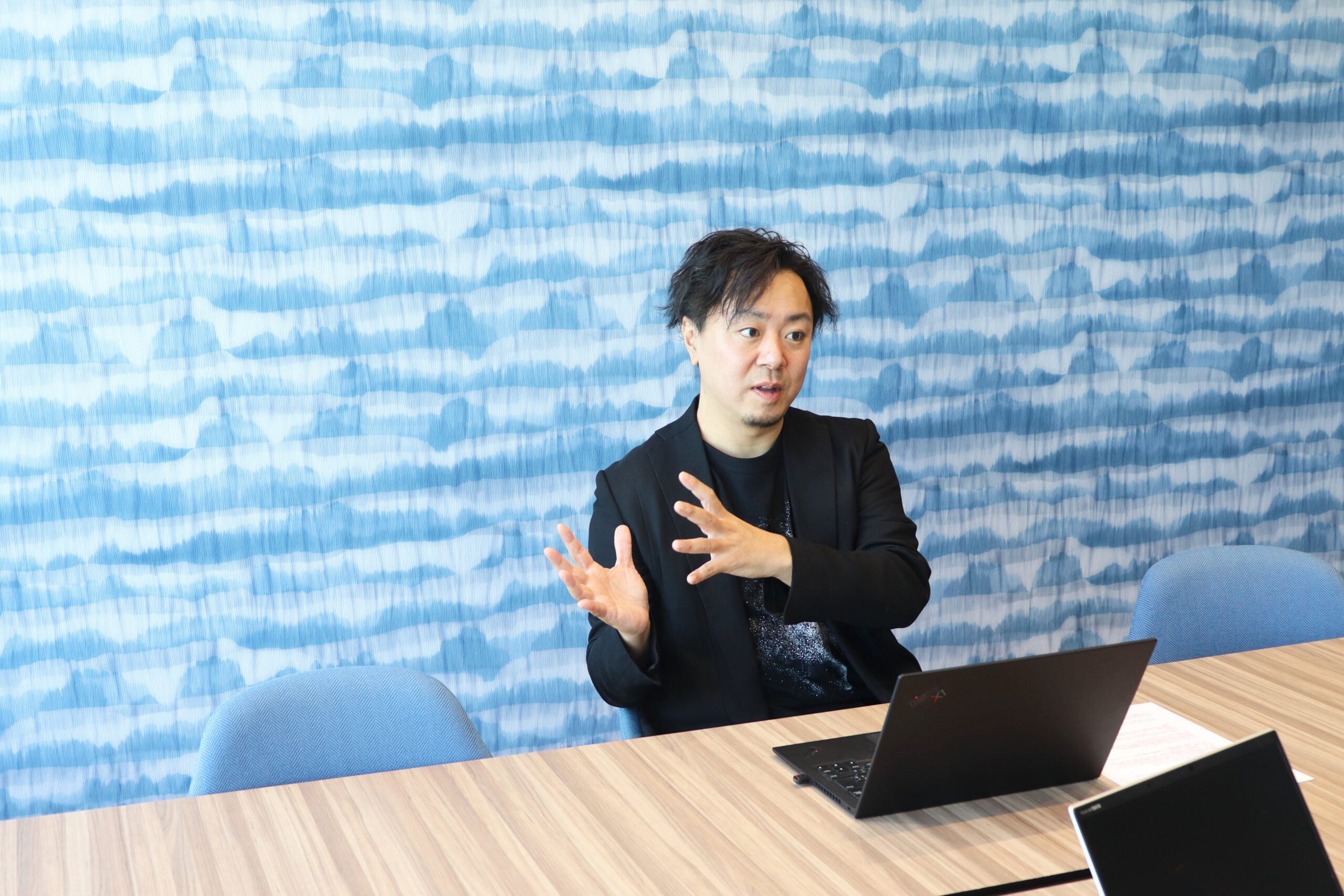
◆The Journey to Joining D-POPS GROUP
Sugihara:
You really started from the ground up. After about 16 years, your staff and sales were growing, and then about a year ago, you joined D-POPS GROUP. Could you tell us about that journey and the reasons behind your decision?
Miyahara:
The biggest reason was that I felt I had hit a wall with what I could do as a self-taught business leader. Just before COVID, our company had started to get a lot of work from government agencies. Many of those projects were set for delivery at the end of March, and we were expecting to see our sales grow. Then, around February, the pandemic hit. Suddenly, almost all of our projects, worth tens of millions of yen, had to be cancelled, and our sales plummeted.
So, when April and May came and there was nothing to do, I decided it was time to pivot the business. Until then, most of our work had come from advertising agencies and media companies, focusing on digital campaigns and promotions. It was about making things as attractive as possible. But in the end, in terms of revenue, that kind of work was extremely volatile. So, I started thinking about returning to what I originally wanted to do: making things. That’s when the company’s foundation began to more closely resemble its current form, creating services and business solutions using systems and technology.
That experience during the pandemic gave me a strong desire to learn more about management and focus on fundamental business principles. In the midst of all that, I felt I had reached the limit of what I could accomplish on my own, doing things my own way. When I thought about getting through the current era and about the remainder of my life, I wanted to do something more interesting, more fundamental, and bigger. I thought it would be a good idea for me to hang around people who could help me do that, so I started to meet with many different individuals, but out of all those encounters, the one with President Goto was the most memorable.
I met with the CEOs of many companies, and most of them would start the conversation by talking about numbers, scale, and business plans. But President Goto was the only one who opened up by talking about mindset and philosophy. Only about 1 in 10 people would talk with me that way. That left a very strong impression on me, and I was drawn to him. I thought, “I want to work with this company! I want to learn about business management from him!”
◆Business Overview
Sugihara:
So that’s how it happened. Now, D-POPS GROUP has many types of companies, but can you tell us about Idealump’s business?
Miyahara:
Our base is “digital manufacturing”. Within that, it’s important to us that we don’t just create things according to our own satisfaction, but rather focus on creating what customers request, providing services and solutions, and increasing their corporate value. President Goto often talks about the land, sea, air, and space strategy of D-POPS GROUP. In that military analogy, I see Idealump as a kind of weapons factory, in that we create the necessary tools to help the other group companies advance their strategies and work together with them to create new businesses.
Sugihara:
Over the past year, even within the group, you’ve been asked to do digital planning and website creation, amid other requests. Do you have your business broken down into specific categories?
Miyahara:
Honestly, we handle a fairly wide range of digital domains. We’ve expanded our diversity within the digital space rather than narrowing down our business, and there’s merit to that. However, not specializing in a single area also poses a challenge when it comes to management.
Sugihara:
In other words, instead of pinning yourselves down by saying “This is all we can do”, you listen to the client’s problems and then do your best to propose a solution that can be solved digitally.
Miyahara:
That’s right. The IT industry, in particular, changes very quickly, doesn’t it? For example, when flip phones gave way to smartphones, everyone focused on smartphone apps, and many app companies popped up. The next trend was social media, and a lot of social media companies were born, and then it was gaming. The speed of these changes is incredibly fast, so rather than trying to chase every trend, our approach is to propose the necessary solutions to solve our clients’ problems as they arise.
◆Company’s Situation During COVID-19
Sugihara:
That’s a great approach. Did the pandemic that began in 2020 have a big impact on your company’s operations?
Miyahara:
Putting it simply, as I mentioned earlier, the work we were getting from advertising agencies at the time tended to be heavily focused on the creative side. Within that, we found that our ability to handle the system side of things, as well, came in handy. On the other hand, large system integrator companies are usually strong in developing systems but not so good at creative work. So, our skills in UI/UX were in high demand. That’s how Idealump survived the pandemic: with a two-sided approach of having strengths in both creativity and systems.
Sugihara:
So, even during COVID, business was still active for large system integrator companies?
Miyahara:
Yes, that’s right. Companies that handle large-scale core system development operate on three- to five-year plans, so apparently their long-term projects kept moving forward even throughout the pandemic.
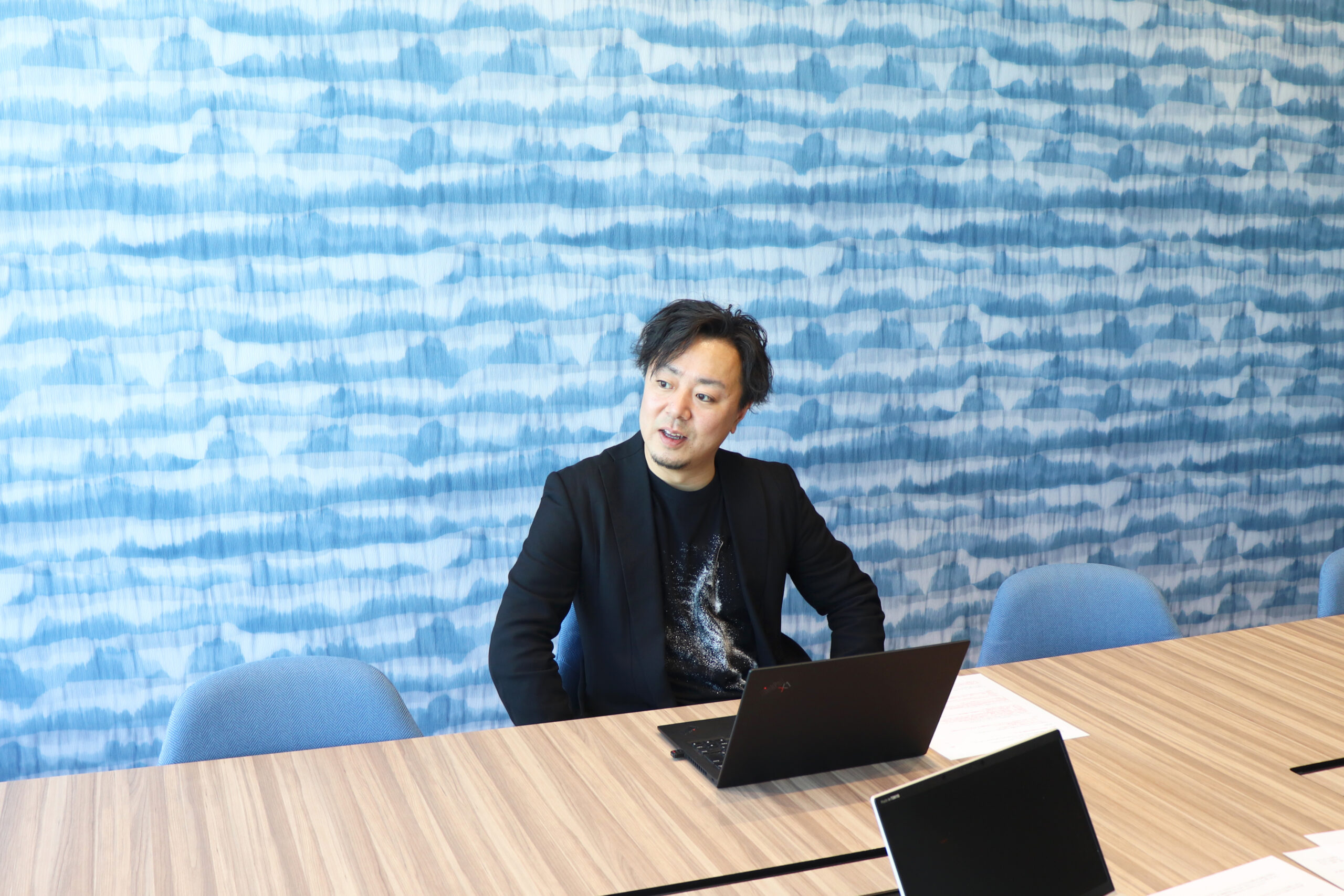
◆Market Situation
Sugihara:
Could you tell us about the current market now that the pandemic has ended? Is the overall economy on an upswing, has momentum returned, or is it pretty much the same? Is there any kind of tailwind now that COVID is over?
Miyahara:
It’s bounced back a bit, but in the IT sector, I feel like the market might dip again slightly in 2025. I think the areas of SES (system engineering service) and time-and-materials contracts will increase even more than they are now. So, if you miscalculate how to obtain projects and contracts, it could be a tough situation. At the same time, I believe there will be opportunities for those who can provide high-quality services.
◆Strong Points
Sugihara:
I see. So, what would you say are Idealump’s key strengths?
Miyahara:
One of our key strengths is our history of over 10 years of providing one-stop digital manufacturing. We’ve built a wide range of digital solutions across various industries, from entertainment to finance, and we now have a track record of over 1,000 projects. I feel that this experience and expertise is another one of our strengths.
Also, there aren’t many companies of our size that can effectively blend both systems and creativity to create high-quality, one-stop web services, so I think that’s also a key strength.
Furthermore, we have quite a few global team members, so we are strong in Japanese, English, French, Arabic, and other languages. I believe that having many successful cases with global projects is another unique aspect of our company.
Sugihara:
That’s very global! Was that by chance, or did you intentionally pursue it?
Miyahara:
Actually, our globalization started as a way to solve the problem of who would join a small startup like ours, which began with only two or three people. Over 10 years ago, it was difficult to recruit talented Japanese people, so we decided to try and hire talented foreigners—talented global talent. That was the trigger.
Sugihara:
How many employees do you have now?
Miyahara:
We have about 50 people in our Japan office right now. Of those 50, about 20% to 30% are international.
Sugihara:
I always had the impression that you were a very logical and analytical person because of how meticulously you seem to work, but now that I’ve had the chance to hold a conversation with you, I feel that you’re surprisingly warm and personable. What sort of leader do you consider yourself to be?
Miyahara:
Hmm, that’s a good question…but I don’t really like to be in the spotlight, so I guess I could say I’m the kind of leader who focuses on supporting everyone else. I’m also the kind of person who hopes everyone can have fun.
Continued in the next part.
Interview conducted by D-POPS GROUP’s advisor Genta Sugihara.
idealump Co., Ltd
Company President and CEO: Hidefumi Miyahara
Address: 4F Jingumae Asama Bldg., 6-18-13 Jingumae, Shibuya-ku, Tokyo
Established: August 1, 2008
Website: https://idealump.com/
Free Site Diagnosis Service: https://idealump.com/webshindan/
Flat-Rate Web Operations Service: https://web-tantou.com/
Next, in the latter part of the interview, we discuss:
・Their flat-rate web operations service, “Web-tan-san”
・Idealump’s atmosphere and culture
・Impression of D-POPS GROUP
・“Realizing a Venture Ecosystem”
・Idealump’s 10-year vision
・And other topics
Be sure to check it out here:
https://d-pops-group.co.jp/en/column/idealump-interview-latter-part/




